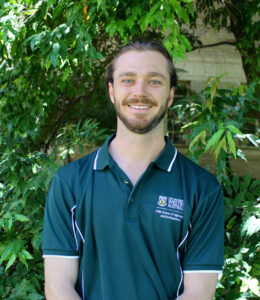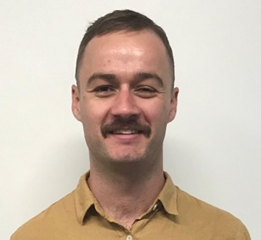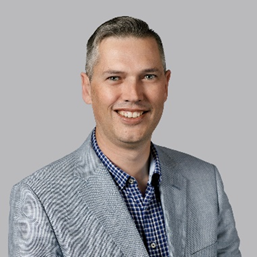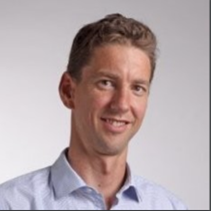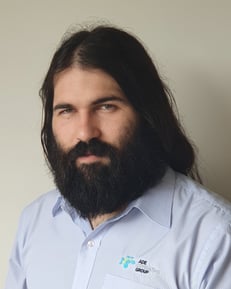National Biosolids Conference 2025
The biennial National Biosolids Conference is heading to Hobart in 2025. Held over two days, this conference will examine key developments in the industry, focusing on the role of industry, regulators, and the community as champions for sustainable biosolids management and end-use. The future of biosolids is filled with both challenges and opportunities.
Under this years theme, Biosolids: Future Possibilities, the conference aims to empower participants to embrace the uncertainties ahead. By shifting the focus from potential obstacles to the vast possibilities within the biosolids sector, presentations will highlight the significant contributions that biosolids can make to the circular economy.
National Biosolids 2025 Program
Event Details
Conference & Exhibition:
| Date | 17 Mar, 2025 – 18 Mar, 2025 |
| Venue | Hotel Grand Chancellor Hobart |
| Address | 1 Davey St, Hobart TAS 7000 |
Conference & Event
Verina Galdas, Event Manager | Ph: 02 9467 0055 | E: vgaldas@awa.asn.au
Exhibition
Michael Silber, Exhibition Manager | Ph: 02 9467 8428 | E:msilber@awa.asn.au
Sponsorship
Troy Waite, Partnerships Manager | Ph: 0418 404 692 | E: twaite@awa.asn.au
Paul Darvodelsky Scholarship
Locus Liu, Project Office, ANZBP | Ph: 02 9467 8407 | E: lliu@awa.asn.au
ANZBP – Lunch & Learn Webinar Series August 2024
Join us for the upcoming ANZBP Lunch and Learn Webinar in August 2024.
This insightful session is themed, Risk Management of Biosolids. This event brings together industry experts and academic researchers to share practical and research-based perspectives on managing the functionalities and complexities of biogas and biosolids systems.
Our speakers will be Peter Donaghy, General Manager Resource Recovery, Environmental and Industrial at Urban Utilities. and Andre Le Roux, Stantec’s Technical Director for Bioresources, UK.
Applying Process Safety Principle to the management of complex biogas and biosolids systems
Peter Donaghy, Urban Utilities
Peter is a Water Industry Leader with experience at senior management and professional levels in operations, infrastructure delivery and business management. He is passionate about creating a sustainable water industry that is embedded and part of our community and developing a continuous improvement culture that focuses on value creation. Dedicated to delivering business, people and environmental outcomes, Peter is a former member of the ANZBP committee.
Operations and Maintenance Approaches and Issues in Advanced Technologies in Biosolids Treatment (UK Perspective)
Andre Le Roux, Stantec, UK
Andre has experience with Industrial wastewater treatment, advanced anaerobic digestion, food waste digestion, and high-rate industrial anaerobic digestion. He helps clients increase renewable energy generation and optimize alternative biofuels.
This Lunch & Learn is free for ANZBP Partners – if you are unsure if your organization is an ANZPB partner you can check here: https://www.biosolids.com.au/advisory-committee/partners/
ANZBP – Lunch & Learn Webinar Series May 2024
Join us for the upcoming ANZBP Lunch & Learn in May 2024 to hear from George Mercer of the ARC Training Centre for the Transformation of Australia’s Biosolids Resource, and David Hall, a highly respected agronomist with over 30 years’ experience specialising in crop nutrition, organics and soil health. George and David will present on topics related to Biosolids for Soil Health.
George Mercer from ARC Training Centre for the Transformation of Australia’s Biosolids Resource will be speaking on the topic “Can transformed biosolids build stable soil carbon?”
George will show us how soil carbon pools respond to wastewater-derived organic amendments including biochar, compost and dried biosolids. He demonstrates the relationships between the microbial carbon pump, soil nutrients and plant productivity in a three-experiment timeline to optimise the functional delivery of transformed biosolids to land.
Bill Hyem and Andrew Bremmer from AgriProve will present on “Growing Top Soils: Profitability, Productivity, Sustainability”. Zooming out, Bill will explain what producers are looking for in terms of soil health and increasing soil carbon, the role of biosolids/organics in achieving this aim, and the role AgriProve and soil carbon credits play in supporting this aim.
These presentations will followed by Q&A sessions afterwards. We look forward to seeing you in the webinar.
Meet your presenters:
Can transformed biosolids build stable soil carbon?
George Mercer
PhD Student and Tim Healey Memorial Scholar
The University of Western Australia and ARC Training Centre for the Transformation of Australia’s Biosolids Resource
George’s interests surround microbial systems, agro-ecology, waste-to-resource, and his research focuses on building soil carbon with biosolids, a by-product of the wastewater treatment process. More specifically, he is investigating how transformed organic amendments can be used to functionalise microbial mechanisms that generate stable soil organic matter.
Growing Top Soils: Profitability, Productivity, Sustainability
Bill Hyem
AgriFutures Horizon Scholar Alumni (2020), Australian National University Graduate and Key Account Manager at AgriProve
A recipient of an AgriFutures Australia Horizon Scholarship in 2020, Bill Hyem is focused on pursuing opportunities to increase sustainability and profitability in agriculture through technological innovations. Bill works with Australian landholders to start soil carbon projects that encourage the use of new technologies and practices for increased sustainability and profitability.
This Lunch & Learn is free for ANZBP Partners – if you are unsure if your organization is an ANZPB partner you can check here: https://www.biosolids.com.au/advisory-committee/partners/
ANZBP – Lunch & Learn Webinar Series February 2024
Join us for an extra special ANZBP Lunch and Learn Webinar with our guest speakers from Canada and the USA!
Professor Grant Clark (Canada) will outline how he leads the Ecological Engineering Research Group, investigating nature-based technologies for responsible civilisations on small planets. More than 750,000 dry metric tons of sewage sludge are produced annually in Canada. Instead of landfilling or incinerating the sludge, it is increasingly processed into biosolids and applied to agricultural fields as organic fertiliser. We often assume that the greenhouse gas emissions (GHGs) resulting from this practice are net-negative, but this has not been well studied. To help address this research gap, Grant conducted field experiments at sites in Truro (Nova Scotia), Montreal (Quebec), and Edmonton (Alberta). Sewage sludge was either anaerobically digested, composted, or alkaline stabilized.
Janine Burke-Wells and Ned Beecher (USA) from North East Biosolids & Residuals Association (NEBRA) will discuss how water resource recovery facilities (WRRFs) manage their “waste” solids can have a major impact on their total net greenhouse gas (GHG) emissions. This presentation will introduce the Biosolids Emissions Assessment Model (BEAM), a calculator tool for getting a handle on your WRRF’s biosolids management GHG emissions. BEAM*2022 can be used to estimate and compare carbon emissions from up to 10 biosolids management options. Several examples will be cited, showing how using the BEAM can help WRRFs better understand the factors that have the greatest impacts on GHG emissions. Links to key resources and the BEAM*2022 will be provided.
These presentations will followed by Q&A sessions afterwards. We look forward to seeing you in the webinar.
Meet your presenters:
Be Careful What You Ask For: A Wholistic Comparison of Emissions from Biosolids Recycling
Grant Clark, Associate Professor, Department of Bioresource Engineering, McGill University
Grant grew up on a mixed farm in Central Alberta, Canada. He holds an industry-cooperative BSc in Agricultural Engineering (Alberta) and a PhD in Biosystems Engineering (McGill).
He is an Associate Professor of Bioresource Engineering at McGill University, where he leads the Ecological Engineering Research Group. He is an affiliate member of McGill’s Bieler School of Environment and the Trottier Institute for Sustainable Engineering and Design, and a Past President of the Canadian Society for Bioengineering.
His research group has a special interest in the circularization of carbon and nutrient flows through food production and organic waste management systems. They are currently involved in several multi-institutional studies of the carbon footprint of municipal organic waste management operations.
BEAM — Accounting for Greenhouse Gas Emissions from Biosolids Management
Janine Burke-Wells, Executive Director, North East Biosolids & Residuals Association (NEBRA)
Janine is the Executive Director of the North East Biosolids & Residuals Association. Prior to joining NEBRA, Janine worked as a public servant for over three decades – 10 years with the U.S. Environmental Protection Agency and over 20 years in local government where she managed the wastewater systems in two different communities in Rhode Island.
Ms. Burke-Wells has a degree in chemical engineering from the University of Rhode Island and a Master of Public Administration from North-eastern University. She represents the State of Rhode Island to New England Interstate Water Pollution Control Commission.

Ned was Executive Director of NEBRA from 1998 to June 2022 then Special Projects Manager tracking research, legislation, and regulations, and providing information to members and the public, authoring articles and papers and making presentations on biosolids management around North America. Since January 2017, he has focused much of his work, on PFAS, and most recently, on leading the National Biosolids Data Project.
He is now mostly retired, but provides some limited consulting. He received the New England Water Environment Association (NEWEA) Biosolids Management Award in 2015 and the Elizabeth A. Cutone Leadership Award in 2020. He has an MS in Resource Management from Antioch University and a BA in Geology from Amherst College.
This Lunch & Learn is free for ANZBP Partners – if you are unsure if your organization is an ANZPB partner you can check here: https://www.biosolids.com.au/advisory-committee/partners/
ANZBP – Lunch & Learn Webinar Series October 2023
Join us for a webinar on Tuesday, 31 October 2023 from 12:00 pm to 1:00 pm AEDT, to hear about Taupo District Council’s journey into land disposal of treated effluent and in more recent years treated biosolids via worm farming. And vermicomposting biosolids in New Zealand comes with a unique set of opportunities and challenges. The presentation will including Regulation and Compliance; Environmental Impact; Odour Control; Market Demand; Education and Awareness; Quality Control; Infrastructure and Technology; Risk Management and Long-Term Sustainability. Followed by an Q&A session.
Taupo Land Disposal 25 Years On
Mr. Kevin Sears, Operations Manager 3 Waters, Taupo District Council
Kevin has been working in three waters operations for more than 30 years with almost 25 of those years at Taupo District Council.
He holds a New Zealand Diploma in Wastewater, Water and Business Management and he is a certified Water Industry Professional in NZ.
In 2017 he was presented the Mentor of the Year Award in recognition of his long-term commitment to training and mentoring others in the industry.
From Challenges to Solutions: A New Zealand Perspective on Industrial Vermicomposting of Municipal Biosolids
Dr. agr. Michael Quintern, Independent Consultant – Presenting on behalf of Noke Limited
Michael received his PhD in “Beneficial Utilisation of Organic Waste on Farmland” in soil science at the University of Kassel ( Germany). He worked for several years as an Assistant Professor at the Department of Soil Science on soil fertility in organic farming.
In 2006, Michael moved to New Zealand to work as a senior scientist at Scion, a Crown Research Institute, to develop a solution for organic wastes from the pulp & paper industry. He developed a solution for industrial vermicomposting of biosolids, food, and paper industry waste, founding Noke Ltd. in 2007. The vermicomposting operation has grown to be the largest globally. To date, MyNoke has diverted more than 1.3 million tonnes of organic waste, including more than 250,000 t biosolids, from landfills in New Zealand, with more than 140,000 tonnes being diverted annually.
Implementing Research & Development and Innovation into the vermicomposting business model was crucial for sustainable growth. Integrating vermicomposting into farm management and improving windrow management mitigated environmental effects and increased profitability. Michael has worked with councils and industries on tailored vermicomposting technologies for specific organic waste streams.
This Lunch & Learn is free for ANZBP Partners – if you are unsure if your organization is an ANZPB partner you can check here: https://www.biosolids.com.au/advisory-committee/partners/
ANZBP – Lunch & Learn Webinar Series August 2023
Join us on Wednesday, 16 August 2023 from 12:00 pm to 1.00 pm AEST, for this webinar to hear from our presenters about plastic pollution in biosolids and harvesting valuable resources from industrial wastewater.
Agricultural soils and plastic pollution: Are biosolids the problem?
Dr Elvis Okoffo, Postdoctoral Research Fellow, Queensland Alliance for Environmental Health Sciences (QAEHS), The University of Queensland
Dr Okoffo completed his PhD at QAEHS in 2021, focusing on developing quantitative analytical methods to measure (mass-based concentration) and provide an understanding of plastic residues in Australian wastewater treatment plants (WWTPs) biosolids, and subsequent releases into the Australian environment. Dr Okoffo’s current research focuses on developing novel sampling approaches and analytical techniques for monitoring plastic residues (microplastics, nanoplastics and microbioplastics) in environmental samples.
Harvesting valuable resources from industrial wastewater.
Associate Professor Caitlin Byrt, ANU College of Science
Caitlin Byrt is an Associate Professor with the ANU working on investigating how plants achieve energy efficient precision membrane separation. Caitlin serves as Deputy Director (Research) of the Australian Research Council Future Crops Centre and as co-Director of Membrane Transporter Engineers Pty Ltd. The knowledge that Caitlin and team gain from studying plant molecular membrane separation is being applied to improving crop performance and designing systems for separating valuable resources from industrial wastewater. This current research project is being developed in collaboration with CSIRO through the inaugural Agri-Food Collaboration Program (AFCP), and includes a team of researchers from ANU and CSIRO Agriculture & Food and Manufacturing.
This Lunch & Learn is free for ANZBP Partners – if you are unsure if your organization is an ANZPB partner you can check here: https://www.biosolids.com.au/advisory-committee/partners/
ANZBP – Lunch & Learn Webinar Series June 2023
Join us to hear from our presenters about interactions between microbial communities in biosolid-amended soils and how we keep PFAS out of reclaimed waters and biosolids.
Cameron is a computational biologist within the Microbiomes for One Systems Health Future Science Platform at CSIRO. His research is focused on understanding how microbes mediate the benefit of biosolids to soils and crops, and how organic pollutants in wastewater might affect this function. Insights developed from his research could be harnessed to develop microbe-focused technologies that boost the benefits of biosolids and ameliorate risks associated with organic pollutants.
Dr Mark Bowman, Technical Director Contamination Assessment and Remediation, GHD
Dr Mark Bowman is a recognised scientist, innovator, and leader driving change for an environment safe from contaminants. Mark was the National Technical Director for the Australian Department of Defence’s contamination programs and previously led teams in the national environmental regulator the Australian Department of Climate Change, Energy, the Environment and Water delivering chemical environmental impact assessments and policy.
Mark is currently a GHD Technical Director within the Contamination Service line in Sydney where he supports a range of government and private sector clients responding to chemicals in the environment including the impacts of PFAS on soil and water.
This Lunch & Learn is free for ANZBP Partners – if you are unsure if your organization is an ANZPB partner you can check here: https://www.biosolids.com.au/advisory-committee/partners/
ANZBP – Lunch & Learn Webinar Series April 2023: PFAS and NEMP 3.0 Legal Implications and the Recycled Organics Circular Economy
Join us to hear from our presenters about NEMP 3.0 legal implications and PFAS & the recycled Organics Circular Economy.
Ross Fox, Principal Accredited Specialist, Planning and Environment Law, Fishburn Watson O’Brien
Ross Fox is a Principal of Fishburn Watson O’Brien Lawyers and an Accredited Specialist in Planning and Environment Law. Prior to this, Ross was a principal lawyer for the NSW and worked closely with the EPA executive and CEO to develop and implement the EPA’s regulatory strategy. Ross takes a multidisciplinary approach and holds a Masters in Environmental Management. Ross now acts for a range of leading private sector and government clients in the resource recovery, liquid waste and biosolids sector. His unique expertise means he is regularly retained by key industry associations including the Waste Contractors and Recyclers Association (WCRA) and Australian Organics Recycling Association (AORA). Ross also regularly advises on environmental matters and obtaining planning approvals for waste infrastructure across NSW, Victoria and QLD.
PFAS and the Recycled Organics Circular Economy
This Lunch & Learn is free for ANZBP Partners – if you are unsure if your organization is an ANZPB partner you can check here: https://www.biosolids.com.au/advisory-committee/partners/





